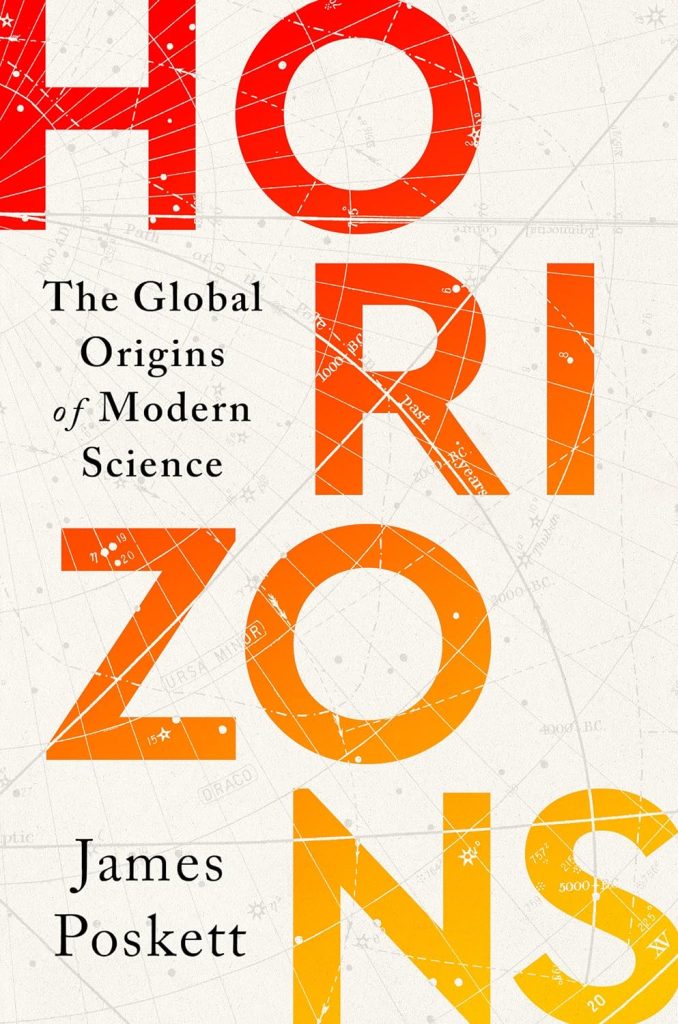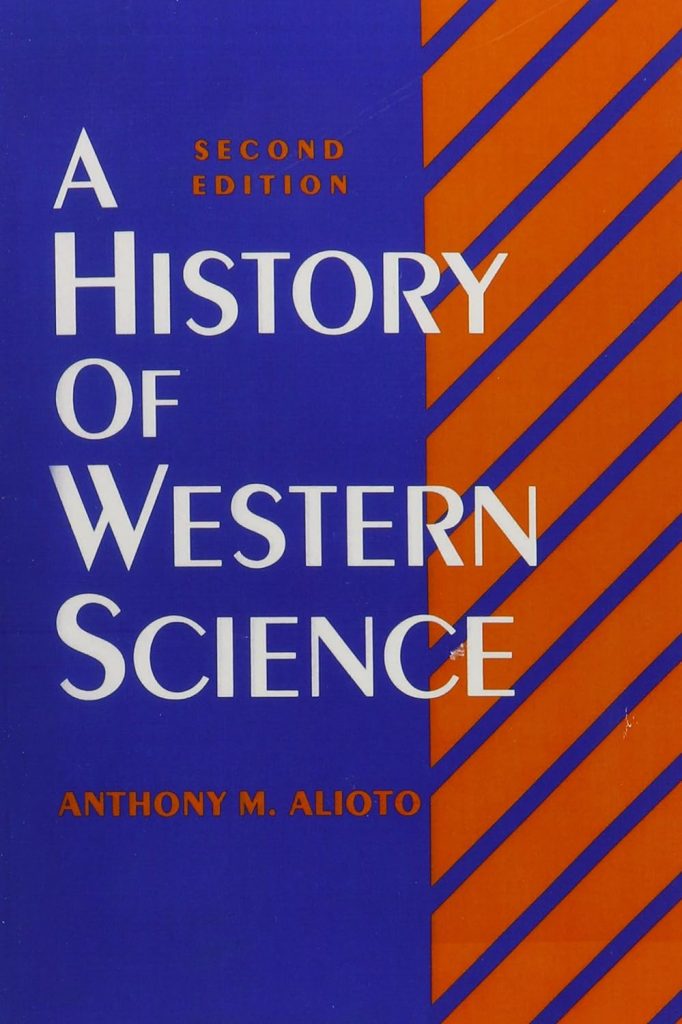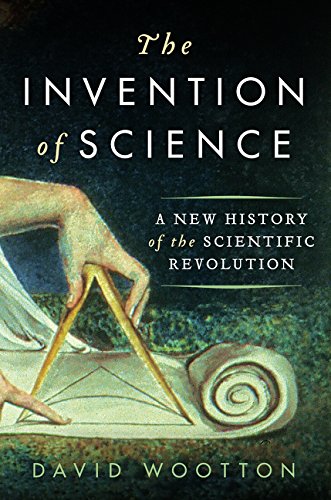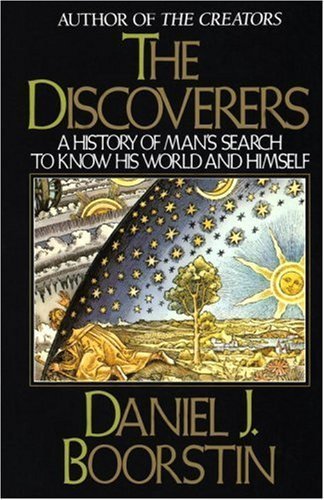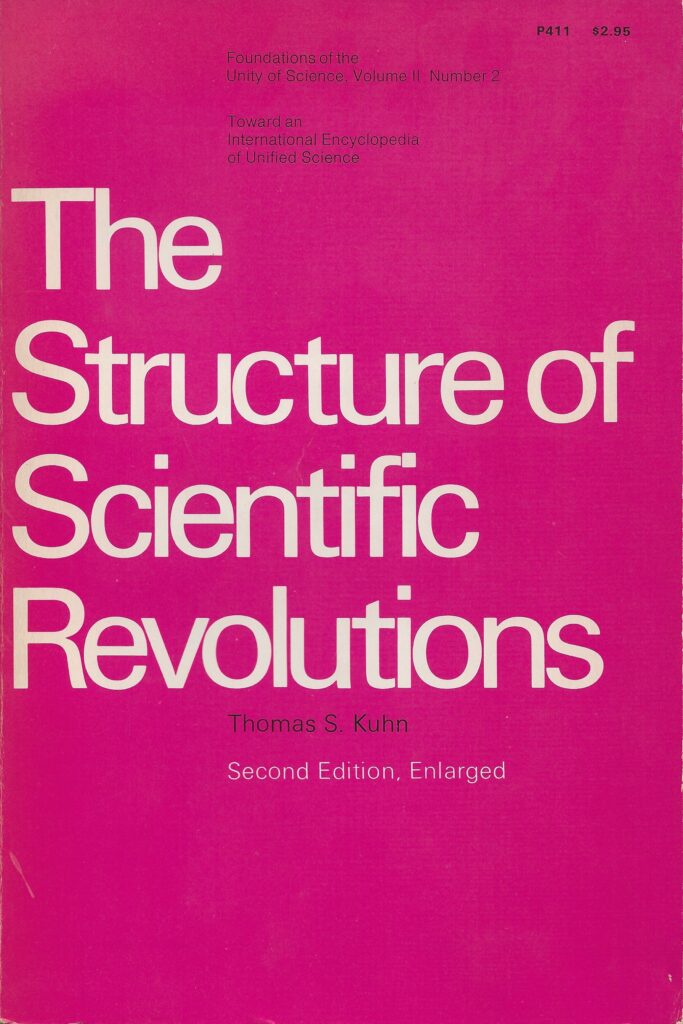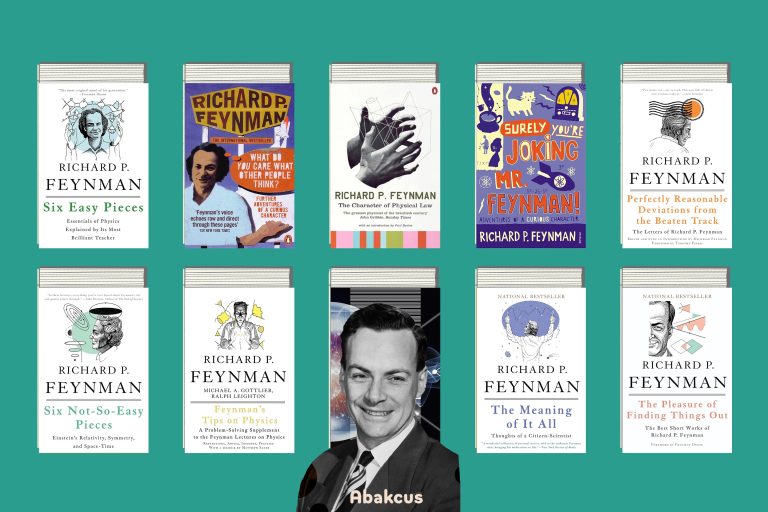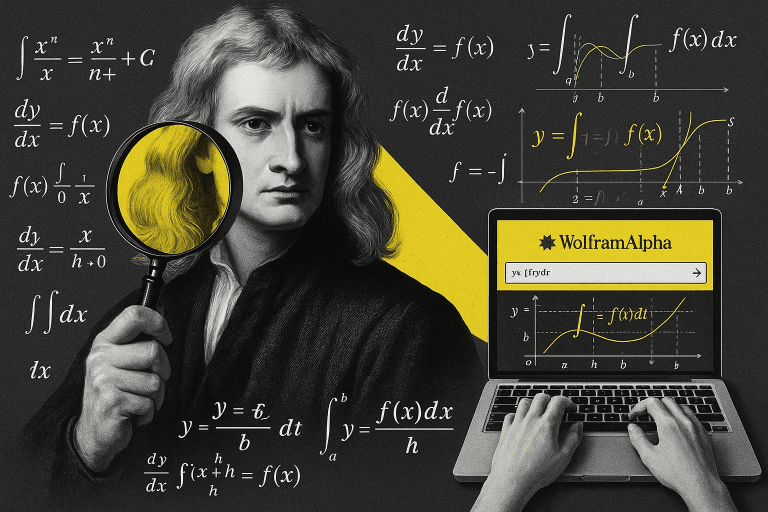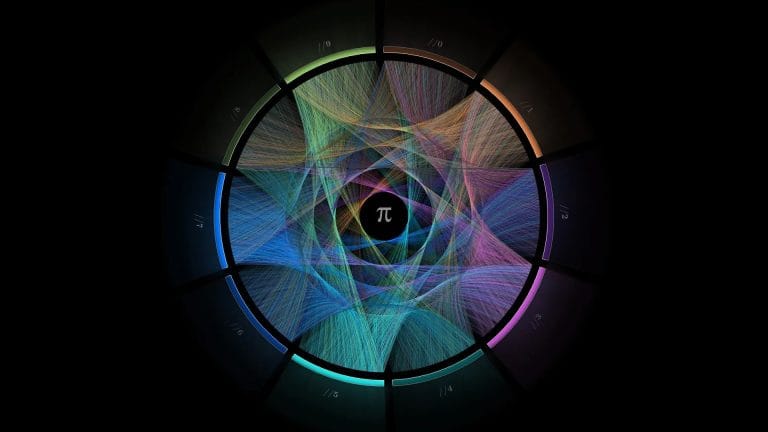Exploring the evolution of science through the lens of history not only enriches our understanding of the natural world but also illuminates the profound impact scientific discoveries have had on society and human thought. The best history of science books weave together compelling narratives of innovation, daring pursuits of knowledge, and the relentless quest to understand the universe’s mysteries.
These history of science books span across various disciplines, from the astronomical observations of ancient civilizations to the groundbreaking experiments in physics and biology that defined the modern era. This list of history of science books aims to guide readers through a curated selection of distinguished titles that reveal the intricate tapestry of scientific advancement and its indelible mark on human history.
Scientific discoveries have had a monumental impact on the fabric of society, revolutionizing how we live, think, and interact with the world around us. These breakthroughs often serve as catalysts for further innovation, setting the stage for advancements in technology, medicine, and industry. Beyond the tangible, the pursuit and application of scientific knowledge have profoundly influenced philosophical and ethical conversations, challenging existing beliefs and inspiring a deeper inquiry into the nature and purpose of our existence. The ripple effects of these discoveries underscore the interconnectedness of science and society, driving progress and shaping the course of human history.
The Very Best History of Science Books

The 20+ history of science books listed below promise more than just an academic foray into the chronicles of scientific inquiry; they serve as a testament to the nobility of the human spirit. Engaging with these history of science books, readers will find themselves on a profound journey that not only charts the monumental leaps in human understanding and capability but also invites a deeper introspection into their personal ethos and worldview.
These history of science books do not merely recount historical events; they challenge us to think more critically about the role of science in shaping societal values, ethical considerations, and our collective aspirations. In essence, they make us more noble, enriching our appreciation for the relentless pursuit of knowledge and the indomitable desire to make the world a better place.
“Horizons: The Global Origins of Modern Science” is a compelling reappraisal of the narrative traditionally held about the development of modern science. In this groundbreaking work, James Poskett invites readers to traverse continents and timelines to recognize the truly diverse influences that have shaped scientific thought and discovery. The book is not just an expansion of scope when it comes to the history of science—it’s a long overdue acknowledgment of contributions from scholars across the globe.
At the core of “Horizons” is the thesis that science has always been an international endeavor—a tapestry woven with threads from around the world. Poskett’s meticulous research debunks the Euro-centric viewpoint by showcasing how pivotal achievements in science were made possible by incorporating global knowledge. The enriching accounts ranging from Copernicus’s use of mathematical techniques from Arabic and Persian texts to Einstein’s inspiration demonstrate how interconnected our scientific heritage truly is.
Poskett goes beyond merely listing non-European scientists and their contributions; he crafts an intricate narrative that explores the dynamics of knowledge exchange between cultures. He illustrates that the most profound scientific breakthroughs were often the result of collaborative ventures, dialogues, and shared insights between different civilizations.
One of the book’s greatest strengths is how it brings lesser-known scientists and their groundbreaking work into the limelight. Through engaging storytelling, Poskett unfolds the significant, yet previously overlooked, impacts of scientists from Africa, Asia, America, and the Pacific on modern scientific discourse.
This book also serves as a historiographical intervention, urging both scholars and lay readers to challenge and refine the prevailing lenses through which we view the history of science. Poskett’s critical approach in discussing Europe’s Imperialist history and its effect on the appropriation and marginalization of non-European scientific knowledge is both enlightening and thought-provoking.
“Horizons” is a highly accessible book. It strikes a commendable balance, offering rigorous academic research in a format that is engaging and easily digestible for readers who might not have a deep background in the history of science.
James Poskett’s “Horizons: The Global Origins of Modern Science” is an important contribution to the historiography of science. Its powerful message about the interconnectedness of global cultures in the realm of science has the potential to reframe discussions in classrooms, lecture halls, and public perception at large. His book is a reminder that science, much like the human story, is rich with influences and contributions from people of all nations and walks of life.
In a world that increasingly recognizes the value of diverse perspectives and interdisciplinary approaches, “Horizons” should be essential reading for anyone interested in the history and philosophy of science. The book doesn’t just recount history; it invites a conversation about the recognition, respect, and celebration of worldwide intellectual legacies in building the foundation of modern science.
In “A History of Western Science,” the reader is taken on an expansive voyage through time, from the contemplative studies of the ancient world to the cutting-edge advancements of 20th-century physics. Through the author’s narrative-driven and engaging prose, we are shown the evolution of scientific thought and discovery as a dynamic and integral component of the Western cultural heritage.
One of the book’s main themes is the progression and metamorphosis of scientific inquiry over the ages. The author effectively illustrates how each era’s cultural and intellectual context shaped the scientific endeavors of its scholars. From the meticulous observations of the Greeks to the pillars of Newtonian physics, and finally to Einstein’s revolutionary theories, the book presents science as a constantly evolving force, debunking the myth of spontaneous, isolated genius in favor of a more complex and interconnected reality.
Another key theme that emerges is the intertwined relationship between science, society, and philosophy. The author doesn’t shy away from highlighting how wars, societal structures, and philosophical paradigms greatly impacted scientific advancement. This dimension adds richness to the narrative, reminding readers that scientific progress does not occur in a vacuum but is rather a response to, and shaper of, the zeitgeist.
Critical to this historical account is the acknowledgment of influential figures whose work has shifted the paradigm of their respective disciplines. The text dives into the lives and contributions of notable individuals, from forgotten alchemists and natural philosophers to the renowned likes of Albert Einstein. Particularly intriguing is the expanded coverage on Einstein and the profound implications his work had on how we understand our world and universe—a testament to the author’s commitment to comprehensive detail.
The author should be commended for distilling complex scientific theories and concepts into a format that is accessible to readers who might not have a technical background. Quantum physics, often regarded as a particularly opaque subject for the layperson, is conveyed in conjunction with its philosophical consequences, inviting deep reflection and engagement.
“A History of Western Science” emerges as a crucial companion for anyone interested in comprehending not just the scientific milestones that have shaped our understanding of the world, but also the socio-cultural backdrops against which these monumental shifts occurred. The additional coverage of 20th century science and technology situates contemporary readers in an ongoing story, of which they are a part.
Whether one’s interests lie in the intellectual tapestries of history, the profound questions of philosophy, or the tangible empiricism of physics and engineering, this book serves as a bridge connecting these disciplines in a manner that is both informative and profoundly human. The tome stands as a powerful reminder that the story of science is, ultimately, the story of us.
In his compelling work, “The Invention of Science: A New History of the Scientific Revolution,” David Wootton presents an engrossing narrative that examines the confluence of events and intellects that birthed modern science. This ambitious text is not merely a homage to the titans of scientific thought but is an articulate defense against contemporary skepticism towards scientific inquiry.
Wootton skillfully articulates the key themes central to the epochal shift in human thought known as the Scientific Revolution. The book accentuates the convergence of multiple streams of innovation across various disciplines – astronomy, mechanics, printing, painting, and more. It convincingly portrays the Scientific Revolution not as a single, unified phenomenon, but as a mosaic of interlinked breakthroughs.
The pivotal messages of the text highlight the importance of the fact as a foundational concept in the modern scientific method and the abandonment of antiquated superstitions. Wootton’s rich exploration extends beyond the innovations and into the ramifications these had on society, religion, and the eventual rise of industrialization.
Wootton’s analysis is meticulous. His choice to delineate the Scientific Revolution into five distinct yet overlapping events offers a fresh perspective that aids in understanding the complexity and diversity of the movement. The interplay of biographical sketches alongside the grand narrative imparts a relatable human element to the discourse.
Particularly persuasive is Wootton’s argument that scientific thought emerged not merely as a byproduct of new facts and technologies but as a new way of thinking that transcended geographical and disciplinary boundaries to define a new world order.
“The Invention of Science” invites readers into a detailed, historically rich environment. Wootton’s prose is both accessible and intelligent, drawing upon significant scholarly research without alienating those new to the subject. The book draws deep connections between past and present, making a compelling case for the enduring impact of the Scientific Revolution.
Structured to accommodate comprehensive examinations of each ‘separate event,’ the book weaves together a cohesive story. For the historically inclined, Wootton provides a fresh lens through which to re-examine familiar figures like Galileo and Newton.
While “The Invention of Science” is robust in its detail, some readers might find the wealth of information challenging to parse. The breadth of the study occasionally leads to dense passages that demand patient and careful reading. Additionally, those looking for a straightforward chronological history might find the thematic approach disorienting.
However, these challenges do not detract from the immense value of the book. One may argue that a subject as monumental as the Scientific Revolution deserves such a sweeping and thorough approach.
David Wootton’s “The Invention of Science: A New History of the Scientific Revolution” is a definitive work that enriches the reader’s understanding of how the Scientific Revolution has shaped the modern world. Not only does it pay tribute to the figures who dared to imagine a different world, but it also serves as a timely reminder of the importance of maintaining the tradition of rigorous scientific exploration and inquiry.
In an era where science faces skepticism, Wootton’s tome stands as a necessary beacon of rationality and an endorsement of the value of scientific advancement. For anyone interested in the history of science or in understanding the foundations of our current technological society, this book is an invaluable resource.
In “The Discoverers,” Daniel J. Boorstin invites readers on an expedition that traverses the breadth of human curiosity and perseverance. It’s a sprawling canvas of history that highlights ingenuity, chance, and the relentless pursuit to understand the world—a world that was once uncharted and filled with enigma.
Boorstin’s work is more than a mere historical account; it is a tapestry of stories about visionaries who have expanded the horizons of human knowledge. From the creators of calendars to the pioneers of space, each discoverer, driven by their curiosity, contributes a thread to the growing narrative of human achievement.
One central theme is how societal and cultural perceptions often hindered progress. For many of the discoverers, prevailing beliefs posed significant barriers to the acceptance of new ideas. Boorstin showcases not only their discoveries but also the courage it took to challenge and overcome the status quo.
Another recurring notion is the concept of serendipity in discovery. Many groundbreaking revelations in history have been a product of fortunate accidents or secondary findings from a search intended for something else entirely. Boorstin captures the unpredictability of the discovery process, reminding us that there is no straightforward path to enlightenment, only the winding road our curiosity paves.
Boorstin’s storytelling prowess brings to life the figures and times of the past. With prose that’s as rich as the subjects he discusses, the narrative flows effortlessly across disciplines and epochs, making complex concepts accessible and engaging. He divides the book into four main parts—Time, The Earth and the Seas, Nature, and Society—and breaks these further into book-length sections that detail specific domains of discovery.
While “The Discoverers” is comprehensive, the sheer scope of content covered can be both its greatest strength and most notable weakness. The vast array of subjects might seem overwhelming or loosely connected to readers looking for an in-depth analysis of certain historical figures or events. Those familiar with Boorstin’s style will appreciate his broad approach, but others may crave a deeper focus on fewer topics.
Additionally, the Western-centric perspective, a common critique in historical analysis, is recognizable throughout the book. Readers hoping for a more globally inclusive history of discovery may find areas lacking in diversity concerning the populations and cultures represented.
Nevertheless, “The Discoverers” stands as an enduring testament to human tenacity and intellect. Boorstin’s homage to the seekers of truth invites us to look at history through the lens of its movers—the people who have persistently asked, “What if?” and “Why not?” It’s a reminder that our current understanding of the world is built upon layers upon layers of discovery, and each layer is rich with stories of ambition, struggle, and triumph.
In our contemporary digital age, where information is at our fingertips, Boorstin’s book serves as an homage to the intellectual bravery that has driven the human race forward. It’s an inspiring read for anyone curious about the past and eager to understand the continuum of exploration that shapes our present and molds our future.
In “A More Perfect Heaven,” Dava Sobel once again wields her prowess as a storyteller to illuminate a seminal moment in human history—the daring intellectual voyage helmed by Nicolaus Copernicus that upturned our understanding of the universe. Sobel, whose reputation for bringing life to scientific histories was firmly established with “Longitude” and “Galileo’s Daughter,” offers a richly detailed narrative that straddles the border between scholarly intrigue and human drama.
At the core of the book is Copernicus, a cleric who envisioned a cosmos radically different from the one accepted in his time. The idea that the Earth was not the center of the universe but merely a planet in orbit around the sun was nothing short of heretical. Sobel paints the portrait of Copernicus as a man of significant conviction, painstakingly building his heliocentric model while navigating the treacherous waters of 16th-century scientific thought—a harbinger of observational accuracy and intellectual bravery.
The book also vividly captures the unlikely alliance between Copernicus and the young mathematician Georg Joachim Rheticus. Their meeting and the subsequent events play out like a well-crafted drama, full of intellectual parrying and emotional stakes. Sobel doesn’t just recount events; she brings readers into the room, making them privy to a confluence of ideas that would eventually coax Copernicus’s work into the public sphere.
The book is tinged with the inevitable conflict between scientific discovery and faith. Sobel navigates these themes with a deft hand, portraying a time when the line between heresy and truth was perilous at best. The narrative serves as a tapestry of human achievement entangled with the tension of existing beliefs and the courage required to challenge them.
Dava Sobel has an undisputed talent for condensing complex scientific chronicles into engaging, digestible prose that grasps both the mind and the heart. In crafting “A More Perfect Heaven,” she gives us another gem that is as educational as it is emotionally compelling. She shows us not only how Copernicus revolutionized the cosmos with his celestial models but also how those intellectual pursuits imprinted upon the human experience.
“A More Perfect Heaven” shines bright in the constellation of works chronicling turning points in human understanding. It is not only a tribute to the mathematical and scientific rigor of Copernicus and his era—it is also an homage to the indomitable spirit of curiosity that drives humanity forward. Sobel’s work is a testament to the fact that the narrative of human progress, intricately bound with the pursuit of the unknown, is as much about the hearts and minds behind the theories as it is about the theories themselves.
In essence, Sobel’s book champions the relentless quest for knowledge and the profound developments birthed from such endeavors. It is a clarion call to the modern world, reminding us of the courage necessary to challenge the status quo and venture into new realms of understanding. For history lovers, science enthusiasts, and the perennially curious, “A More Perfect Heaven” is an intellectually stirring and deeply human read.
Richard Rhodes’s “The Making of the Atomic Bomb” is a magisterial and exhaustive narrative that brings to life one of the most pivotal and controversial scientific advancements in modern history—the creation of the atomic bomb.
Rhodes masterfully threads multiple key themes through his work. The immense scientific undertaking is traced back to early theoretical foundations, detailing the breakthroughs in nuclear fission that eventually lead to this terrible weapon. Political intrigue runs deep as the race to develop the bomb pits nations against each other in the perilous times of World War II. Human psychology and ethical reflections are scrutinized, as scientists grapple with their discoveries’ potential for both progress and destruction.
“The Making of the Atomic Bomb” is storytelling at its finest. The detailed characterization of historic figures such as Einstein, Oppenheimer, and Bohr makes the narrative as gripping as any thriller while grounding it in personal and global consequences. Rhodes’s fascination with his subject matter is infectious, as he spans disciplines and recounts history with a lucid prose style that makes complex scientific concepts accessible to lay readers.
The book’s extensive research is evident in every chapter, charting a course through the historical events that unfolded across different continents and through various eras. It is a comprehensive account that not only informs but urges the reader to ponder the profound impact of scientific discovery on humanity and the morality of wielding such power.
Despite the technical subject matter, Rhodes manages to write a book that is richly humane by underscoring the stories of individuals involved in this extraordinary feat of science and engineering. The biographical approach offers unique insights into the minds of those who were a pivotal part of the bomb’s own genesis.
Rhodes does not shy away from the moral dimensions of the atomic bomb’s creation, providing a nuanced exploration of the ethical implications that resonate to this day. The arms race, the Cold War, and the constant looming threat of nuclear annihilation that emerged post-World War Two can trace their origins to the events and decisions captured so vividly in Rhodes’s chronicle.
“The Making of the Atomic Bomb” is a seminal work that has rightly earned its place as a definitive account of one of history’s most significant scientific breakthroughs. Rhodes combines exceptional historical scholarship with a novelist’s touch for narrative. Any reader interested in history, science, human character, or the ethics of technology will find this authoritative work both enlightening and thought-provoking.
Highly recommended, Richard Rhodes’s work is not just a recounting of historical fact but a meditation on the profound implications of scientific innovation. It is a book that stands the test of time and remains essential reading for anyone seeking to understand the world shaped by the atomic bomb’s creation.
For years, I had this book, Gödel, Escher, Bach: an Eternal Golden Braid by Douglas Hofstadter, sitting on my shelf, untouched. Its daunting length and density always kept it at the bottom of my “to read” list. But, on impulse, I decided to give the first chapter a shot. And boy, was I hooked within the first few pages! After a few months of slow progress, I finally finished it. Now, let me give you a brief review.
As the title suggests, Gödel, Escher, Bach delves into the interconnected worlds of Kurt Gödel, M.C. Escher, and Johann Sebastian Bach. What ties these three geniuses together is the concept of strange loops – those self-referential puzzles found in hierarchical systems. Hofstadter begins by exploring intuitive examples of this concept: Bach’s canons, Escher’s mind-bending staircases, and the infamous Epimenides paradox – “I am lying.”
The first half of the book gradually builds up to a deep dive into number theory, ultimately leading to Gödel’s Incompleteness Theorem. This groundbreaking theorem reveals that formal mathematics itself contains a self-referential strange loop. It shows that no system of number theory can be both “complete” and “consistent” – there are always true statements that cannot be proven within the system. Hofstadter takes over 100 pages to unravel the intricacies of the Incompleteness Theorem, so I won’t attempt to do so here!
In the second half of the book, Hofstadter explores the far-reaching implications of this discovery, from artificial intelligence to biology, symbolic reasoning, computer science, and the philosophy of mind.
What sets Gödel, Escher, Bach apart is its unique structure. Each traditional chapter is followed by a fictional dialogue between recurring characters. These dialogues, often allegorical in nature, foreshadow or embody the concepts that the subsequent chapter explores in a more concrete way. Sometimes, the structure of the dialogue itself becomes the “message,” like a fugue, while other times, the dialogue indirectly describes a concept, using tools like a “universal record player” to delve into self-reference and formal undecidability.
Most of the book has stood the test of time remarkably well. However, the last third contains some significant missed predictions, which somewhat detract from an otherwise captivating philosophical exploration of AI and computation. Notably, the author repeatedly emphasizes that a chess program would not surpass a human player until we achieve something close to artificial general intelligence.
Similarly, the sections on AI may feel dated to modern readers. The book predominantly focuses on symbolic AI approaches, which align neatly with the discussion of formal systems. Since its publication, non-symbolic AI has gained popularity, and it seems to be the path that most AI researchers are pursuing. Consequently, many of the author’s predictions about AI fall flat.
If you’re not interested in the latter half, fear not! The first half of the book stands on its own, offering an exciting journey through the proof of Gödel’s incompleteness theorem. Starting with an introduction to formal systems, transitioning to number theory and propositional logic, and culminating in an intuitive proof of the incompleteness theorem, it’s a self-contained adventure worth experiencing.
Personally, I found the sections on number theory quite accessible. Even the description of Gödel’s incompleteness theorem, though complex, made sense to me – but I had some prior exposure to it. For a more concise explanation of Gödel’s theorem, I highly recommend this Quanta article: How Gödel’s Proof Works.
Upon reflection, I realized that the order in which the three figures are mentioned in the title is fitting: Gödel, Escher, and Bach. At its core, this book delves deep into formal systems and the reasoning behind symbols, which falls right into the domain of Gödel. Escher’s works serve as visual metaphors for these concepts – recursion, self-reference, and more. As for Bach, discussing his contributions proves more challenging in a text-based medium, so he is mentioned less frequently, albeit indirectly, with respect to the structural elements of music, rather than its aesthetics or auditory mechanics.
Discover the groundbreaking insights of Thomas S. Kuhn in his influential book, “The Structure of Scientific Revolutions.” In this captivating read, Kuhn reveals his revolutionary perspective on how scientific knowledge progresses. He introduces the concept of paradigms, which encompass theories, research methods, and standards that define a scientific discipline. Through engaging in “normal science,” researchers refine these paradigms and solve puzzles within their field. However, as unexplainable anomalies accumulate, a crisis ensues, leading to a paradigm shift and a new way of comprehending the world.
Drawing upon historical examples from physics, chemistry, astronomy, and even geology, Kuhn showcases how past scientists approached questions and challenges in vastly different ways. From Aristotle and Newton to Einstein, these pioneers shaped the scientific landscape through their paradigm-shifting discoveries.
Kuhn’s work has popularized the buzzwords “paradigm” and “paradigm shift,” influencing the way we understand and discuss scientific advancements. Throughout his book, Kuhn illuminates three key insights.
Firstly, he highlights the novelty of unifying paradigms in scientific fields. Previously, scientists began with varied principles and ideas before gradually forming shared understandings and refining their pursuits. This shift allowed for specialized communication and progress within limited peer groups, contributing to science’s historical retreat to its ivory tower.
Secondly, Kuhn argues that scientists often cling to old paradigms, creating ad hoc explanations to maintain their validity. However, a new paradigm emerges and presents itself as a more fitting alternative, challenging the old ways of thinking. Kuhn likens this process to natural selection, where survival in the present takes precedence over achieving an ultimate goal. Convincing and converting others to embrace a new paradigm is a slow and human endeavor, with young scientists often at the forefront of novel ideas.
Lastly, Kuhn sheds light on the hidden and forgotten history of scientific revolutions. He critiques textbooks for glossing over the intricate and complex past of scientific disciplines, focusing solely on the current paradigm. This truncation of history fosters the misconception that science progresses linearly through accumulating facts, theories, and methods. Instead, Kuhn reveals that revolutions occur, rewriting textbooks and prompting scientists to approach problems from fresh perspectives.
With its readable prose and intellectually stimulating ideas, “The Structure of Scientific Revolutions” remains a timeless masterpiece by Thomas S. Kuhn. Join the ranks of those inspired by his groundbreaking theories and embark on a journey of scientific discovery.


